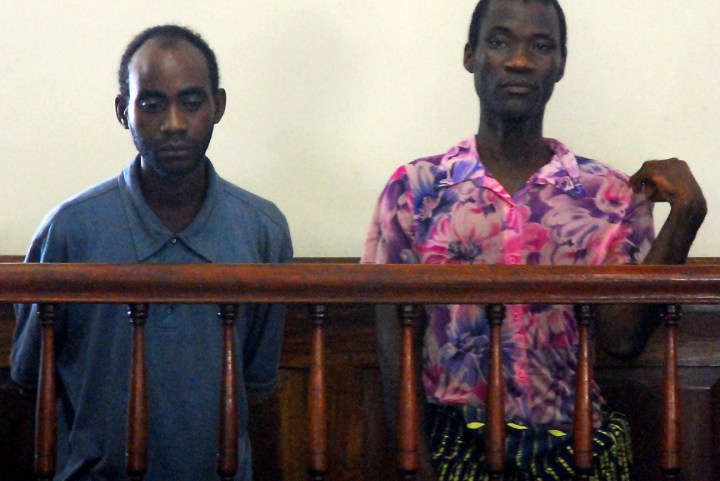Following a trial that has spotlighted Malawi's harsh treatment of its gay community, Steven Monjeza and Tiwonge Chimbalanga have been sentenced to 14 years hard labour for “gross indecency” and the performance of “unnatural acts”.
Judge Nyakwawa Usiwa Usiwa told the two men: “I will give you a scaring sentence so that the public be protected from people like you, so that we are not tempted to emulate this horrendous example.”
The pair’s lawyer had asked for a much lighter sentence and gay rights campaigners have condemned the sentences, labelling them as grossly unfair.
Peter Tatchell, a UK gay rights activist, said, “Unlike in a rape case, there was no complainant or victim. Here are two consenting adults doing their thing in private. Nobody will be threatened or offended if they are released into society.” And Michelle Kagari, deputy director for Africa of Amnesty International, called the sentence “an outrage” and described the two as “prisoners of conscience”, adding AI would continue to campaign for them to be freed.
However, churches and church groups in Malawi have come out in support of the government, urging it to uphold its ban on homosexuality, which various church leaders have described as “un-Christian”.
This case focuses attention on a trend of increasing hostility towards homosexuality across Africa, where being gay is officially illegal in at least 37 countries, including Malawi. And in Uganda, lawmakers have been debating a bill that could sentence homosexuals to life in prison and includes capital punishment for “repeat offenders”. Homosexuality is not illegal in South Africa, of course, but lesbians have been gang raped, ostensibly to “cure them” of their sexual orientation.
International groups have been urging Malawi to ease back from its harsh stance on homosexuals as exemplified by this controversial trial, but the sentences handed down on Monjeza and Chimbalanga suggest their pleas have fallen on deaf ears.
Now international observers are already noting that Malawi may find such international attention increasingly uncomfortable, especially since 40% of its national development budget is dependent on grants from international donors who may, in turn, be influenced by international human and civil rights groups.
By J Brooks Spector
Photo: Reuters



















 Become an Insider
Become an Insider